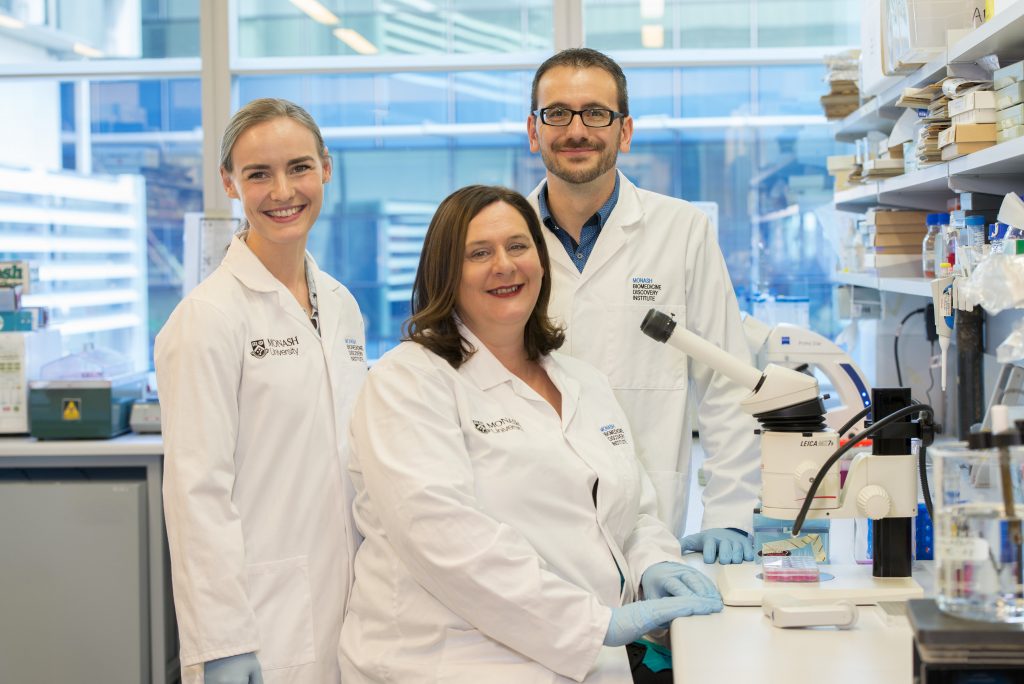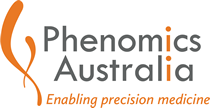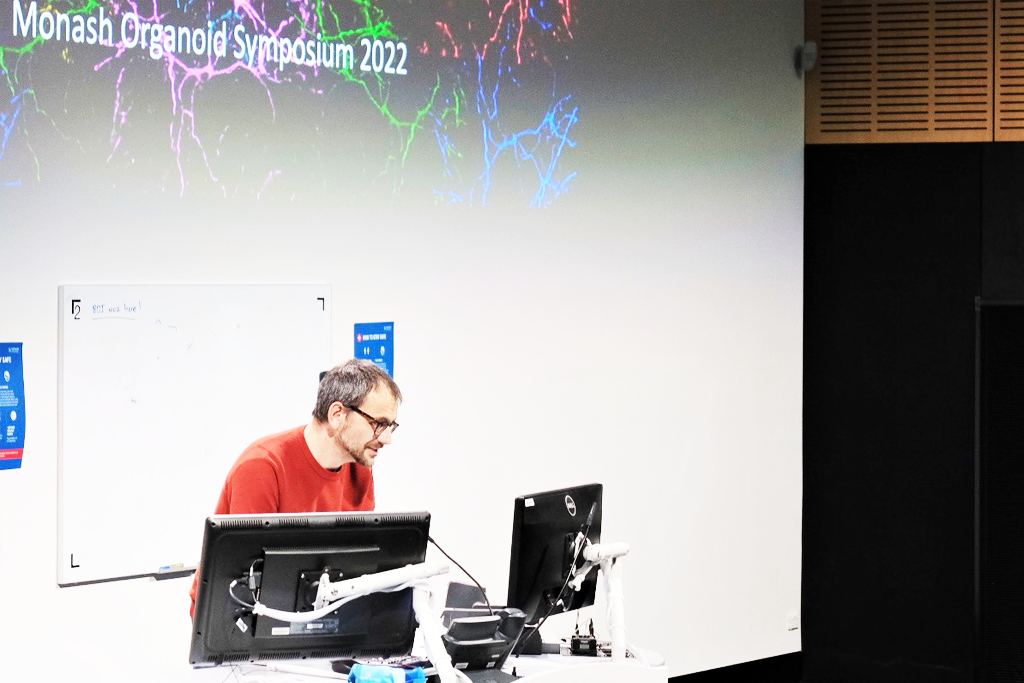Phenomics Australia in vitro node the Monash BDI Organoid Program held a symposium on “Emerging Technologies in Organoid Research” on November 15, 2022, at Monash University’s Clayton Campus.
The event attracted over 200 research staff, students, and industry professionals from various research institutions and companies across Australia. The symposium offered attendees the opportunity to learn about new techniques used in organoid research, share knowledge and network with other professionals.
The symposium featured four main themes: fundamental organoid methodologies, cancer, tissue and disease modelling, and advanced methodologies. Attendees enjoyed a balanced mix of talks that covered both basic organoid methods and scientific knowledge and had time to network with colleagues over free barista-made coffee between each session.
The event was made possible through the generous support of sponsors, including Azenta, Bio-Strategy, Corning, Lonza, Monash Stem Cells and Development Program, Phenomics Australia, Stem Cell Technologies, and Thermo Fisher Scientific. Their contributions enabled the symposium to be a free, fully catered event, which was greatly appreciated by the attendees.
Feedback from the attendees has been overwhelmingly positive, with 96% reporting that they gained valuable knowledge for their research, and 100% indicating that they look forward to participating in the next Symposium. This was the second method-focused organoid symposium hosted by the Monash Organoid Program, following a two-year interruption by the pandemic. The program is already planning another similar event for 2023, and tentative dates will be announced shortly.

Overall, the Monash BDI Organoid Program Symposium 2022 was a resounding success, providing a valuable platform for those in the organoid research field to exchange knowledge, network and foster collaborations, and receive updates on the latest developments in the field.
Phenomics Australia provides a national centre of expertise and service provision to deploy a more comprehensive and sophisticated range of in vitro Genome Engineering and Disease Modelling capabilities to understand the functional consequences of DNA sequence variation in the human genome for health and disease while maintaining the expertise for in vivo disease modelling and genome engineering. To meet the high demand for adaptable and scalable disease-modelling platforms for improved diagnosis, Precision Medicine for genetic disorders, and therapeutic development by both academia and the biopharmaceutical industry, Phenomics Australia offers In Vitro services through a collaborative consortium of ten laboratories and facilities across Australia, operating at ANU (ANU Centre for Therapeutic Discovery), Perkins (Translational Cancer Research Program in Oncology), Monash (Monash Organoid Program & Monash Genome Modification Platform), MCRI (iPSC derivation & Gene Editing Facility), Peter Mac (Victorian Centre for Functional Genomics), UMelb (Centre for Stem Cell Systems & Stem Cell Disease Modelling Laboratory), UQ (In vitro Genome Engineering and Disease Modelling Service), and VCCRI (Stem Cell Production Facility iPSC Reprogramming Service)







